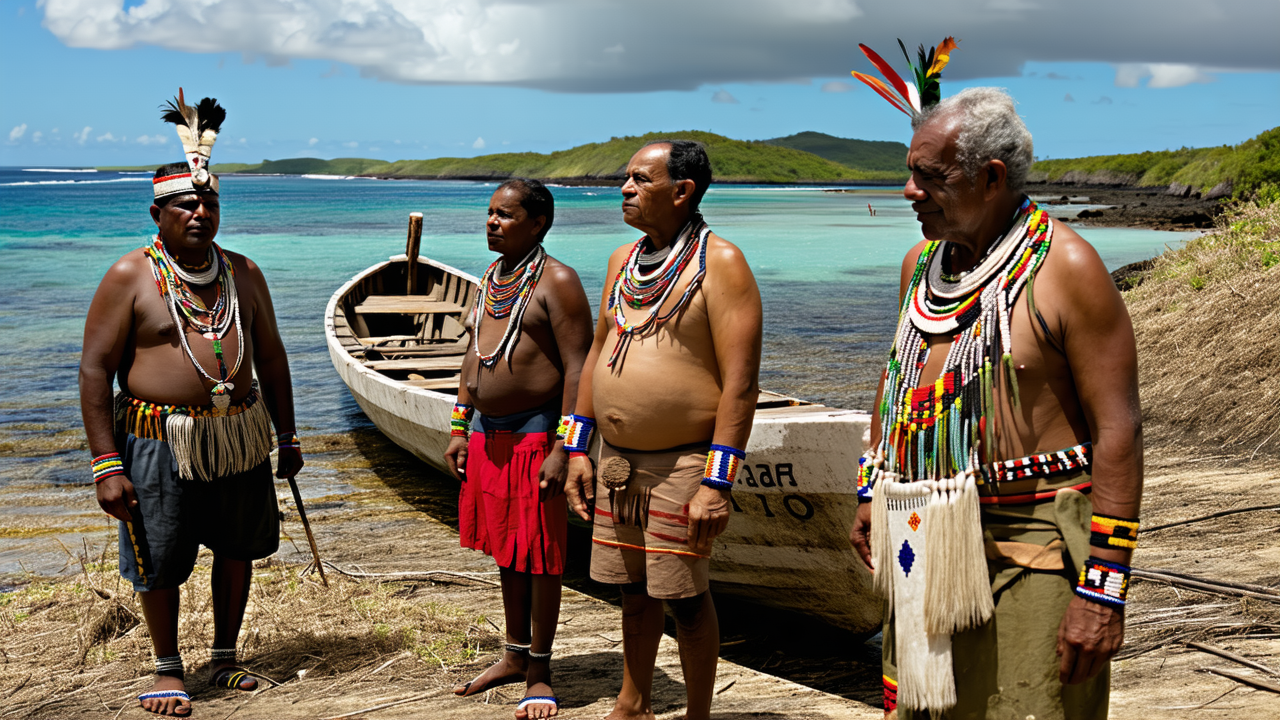Australian Court Rules No Legal Duty of Care Owed to Torres Strait Islanders Over Climate Change
Australian Court Rules No Legal Duty of Care Owed to Torres Strait Islanders Over Climate Change
The Australian Federal Court has ruled that the Commonwealth does not owe a duty of care to Torres Strait Islander peoples to protect them from the impacts of climate change or to fund adaptation measures. The decision, delivered by Judge Michael Wigney, has sparked deep sorrow among Indigenous communities who have long warned of the existential threat posed by rising sea levels and extreme weather events.
Uncle Pabai Pabai, a traditional owner from the Guda Maluyligal people, expressed heartbreak following the ruling.
"My heart is broken for my families and my community," he said, echoing the sentiments of many who have been fighting for their ancestral lands and heritage.
The case was brought by Uncle Paul Kabai and Uncle Pabai Pabai, who travelled nearly 900 kilometers from their homes in Saibai and Boigu Islands to the Federal Court in Cairns. Their legal battle, supported by the Grata Fund and modeled on a landmark case in the Netherlands, aimed to establish that the Australian government had a legal obligation to protect Indigenous communities from climate change.
Despite the court’s acknowledgment of the severe impacts of climate change on the Torres Strait Islands—including rising sea levels, storm surges, and loss of ancestral graves—Judge Wigney ruled that the issue of greenhouse gas emissions targets falls under "core government policy," a matter for the Parliament, not the courts.
The judge also rejected the claim that cultural loss due to climate change could be compensated under negligence law, stating that he could not recognize it in law for the first time as a single judge.
"There could be little, if any, doubt that the Torres Strait Islands and their traditional inhabitants will face a bleak future if urgent action is not taken to address climate change and its impacts," Judge Wigney said.
During the trial, the court visited the islands of Boigu, Saibai, and Badu, where evidence of coastal erosion, soil salinity, and extreme weather was presented. The judge noted that sea levels in the Torres Strait are rising at double the global average, putting the islands at risk of becoming uninhabitable.
"Unless something is done to arrest global warming and the resulting escalating impacts of climate change, there is a very real risk that the applicant's worst fears will be realised and they will lose their islands, their culture and their way of life," the judge said.
The ruling has been met with strong opposition from Indigenous leaders. Aunty McRose Elu, a Torres Strait Islander elder, called the decision a "moral loss for the government, not for us."
"We will be the first climate refugees in Australia... what will I say to my grandchildren about this decision?" she said, highlighting the intergenerational impact of the ruling.
Despite the court’s rejection, the case has brought international attention to the plight of Torres Strait Islanders and has sparked renewed calls for stronger climate action in Australia. Minister for Climate Change Chris Bowen acknowledged the vulnerability of the region and reaffirmed the government’s commitment to reducing emissions and adapting to climate impacts.
"There is always more to do," he said, emphasizing the need for urgent and ambitious action to address the escalating climate crisis.
This landmark case has set a precedent in Australian law and has reignited the conversation around the legal responsibilities of governments in the face of climate change.
